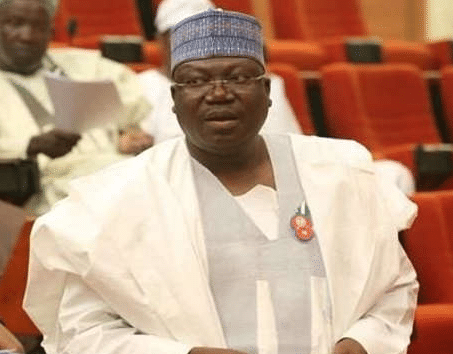We’ll promote secondary production, value-chain system for economic growth in Oyo – Economic Adviser

The Oyo State government says it will promote secondary production and establish value-chain system to upscale agro-processing activities in the state.
Dr Musbau Babatunde, the Chief Economic Adviser to Gov. Seyi Makinde said this in an interview with the News Agency of Nigeria (NAN) in Ibadan on Friday.
READ ALSO: FRSC records 2 crashes, no death during “Ember” months in Badagry
Babatunde explained that government would leverage on its very high comparative advantage in the production of certain agro-based commodities to diversify the economy of the state.
“The world is moving from comparative advantage to competitive advantage as well as value chain system.
“The present administration is also trying to key into the value chain system by bringing up agro-processing activities.
“This will generate jobs for our teeming youths and create value addition to the goods that are produced in the state’’, he said.
Babatunde further said two of the farms settlements in the state would take off soon, with respect to the farm estate policy that would be adopted.
“The other nine settlements are also going to come on board, given the business initiative.

“We believe that this is a very good opportunity for the state’s economy, as we are looking at ways to diversify the economy from primary production to manufacturing,” he said.
He noted that the economic direction of the state government was entrenched on four pillars, which included the provision of economic opportunities in agriculture and agro-business.
According to him, others are well-educated human resources, effective healthcare delivery system and provision of adequate security.
The chief economic adviser further said that human capital development was also key, as quality workforce would be responsible for driving the state’s policies, particularly on economic development.
“The state has actually devoted about 22.6 percent of its 2020 budget to cover a lot of activities in education.
“The abolishment of the N1,000 levy for students in all public secondary schools has increased enrolment and reduced the number of out-of-school children in the state.
“We now need more hands to match up with the increase in enrolment, and this year, government will recruit more teachers.
“The expenditure of the state goes beyond teaching and learning environment. We will provide adequate furniture and toilet facilities, alongside other learning resources for teachers and students.
“We will ensure the quality of our education system through various training and retraining with the ‘training the trainer’ initiative,” he said.
Babatunde also noted that government had somewhat improved the health sector, adding that the primary and secondary healthcare institutions in the state had been put in proper shape.
“What we inherited were basically not functioning effectively, and because of that, this administration, in 2019, inaugurated a Radio Diagnostic Unit, a Surgical Operation Theatre and an Automated Medical Laboratory at the State Hospital, Ring Road in order to improve healthcare delivery.
“The state government wants to make sure that the health institutions on ground are quite functional so as to serve the people maximally.
On security, the chief economic adviser said that government recently procured and distributed 100 vehicles to fight crime and dispel untoward incidents that had been threatening the security of live and property in the state.
“When there is conducive atmosphere, investors will be encouraged to come into the state and this will boost our economy,” Babatunde said.
He also explained that the government had created the Bureau of Investment and Public Private Partnerships to serve as a one-stop-shop that would encourage the ease of doing business.
“These have actually invigorated and enhanced economic opportunities as well as increased effectively the ease of doing business in the state,” he said.
Babatunde further said that the government had embarked on massive construction and rehabilitation of roads in the state.
“The construction of Moniya-Iseyin road started last year, while other roads are also being taken care of in the 2020 budget.
“That was why the 2020 budget for works, transportation and infrastructure constituted 23 percent of this year’s budget.
“With all these, we believe that the economy will expand in terms of job creation, quality products and resources.
“The efforts of the state government in this regard is beginning to manifest, as some of the state-owned moribund investments and industries are gradually coming alive.
“We are already finalising arrangements with some investors to resuscitate some of these moribund industries like the asphalt plant, the quarry and some fruit processing factories that could leapfrog the state’s internally-generated revenue (IGR),” Babatunde said.








